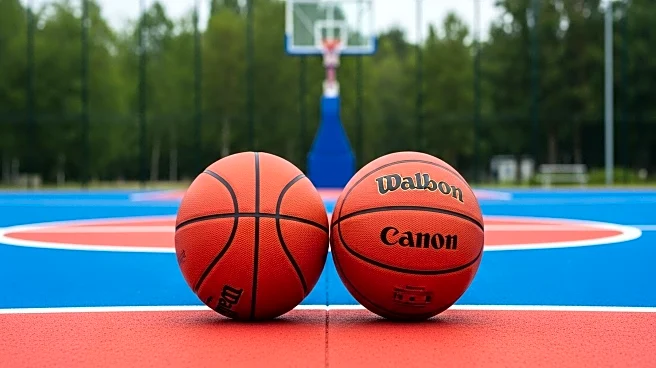What's Happening?
Napheesa Collier, a player for the Minnesota Lynx, has publicly criticized WNBA Commissioner Cathy Engelbert, describing her leadership as dismissive and condescending. Collier's comments come amid ongoing tensions between the WNBA and its Players Association over leadership and league management. The criticism highlights the complex ownership structure of the WNBA, where the NBA holds significant influence, owning approximately 60% of the league. Collier's remarks have sparked a broader discussion about the NBA's role in the WNBA's operations and its impact on the league's growth and player relations.
Why It's Important?
The criticism from Collier underscores the challenges faced by the WNBA in achieving autonomy and growth. The NBA's substantial ownership stake means that its interests heavily influence WNBA decisions, potentially stifling the league's development. This situation raises concerns about the WNBA's ability to negotiate favorable terms for players and expand its market presence. The players' dissatisfaction with leadership could lead to increased pressure for structural changes within the league, affecting future negotiations and the overall direction of women's professional basketball in the U.S.
What's Next?
As the WNBA continues to grow, the league faces critical decisions regarding its leadership and relationship with the NBA. The players' call for change may lead to increased scrutiny of Engelbert's role and the NBA's influence. Future collective bargaining agreements will likely address these issues, with players seeking greater independence and improved conditions. The outcome of these negotiations could significantly impact the league's trajectory and its ability to capitalize on recent successes, such as increased media rights deals and franchise valuations.
Beyond the Headlines
The ongoing debate about leadership in the WNBA highlights broader issues of gender equity in sports. The players' demand for better treatment and recognition reflects a larger movement advocating for women's rights and representation in professional sports. This situation may inspire similar actions in other leagues, prompting discussions about the role of major sports organizations in supporting women's sports and ensuring fair treatment for female athletes.












